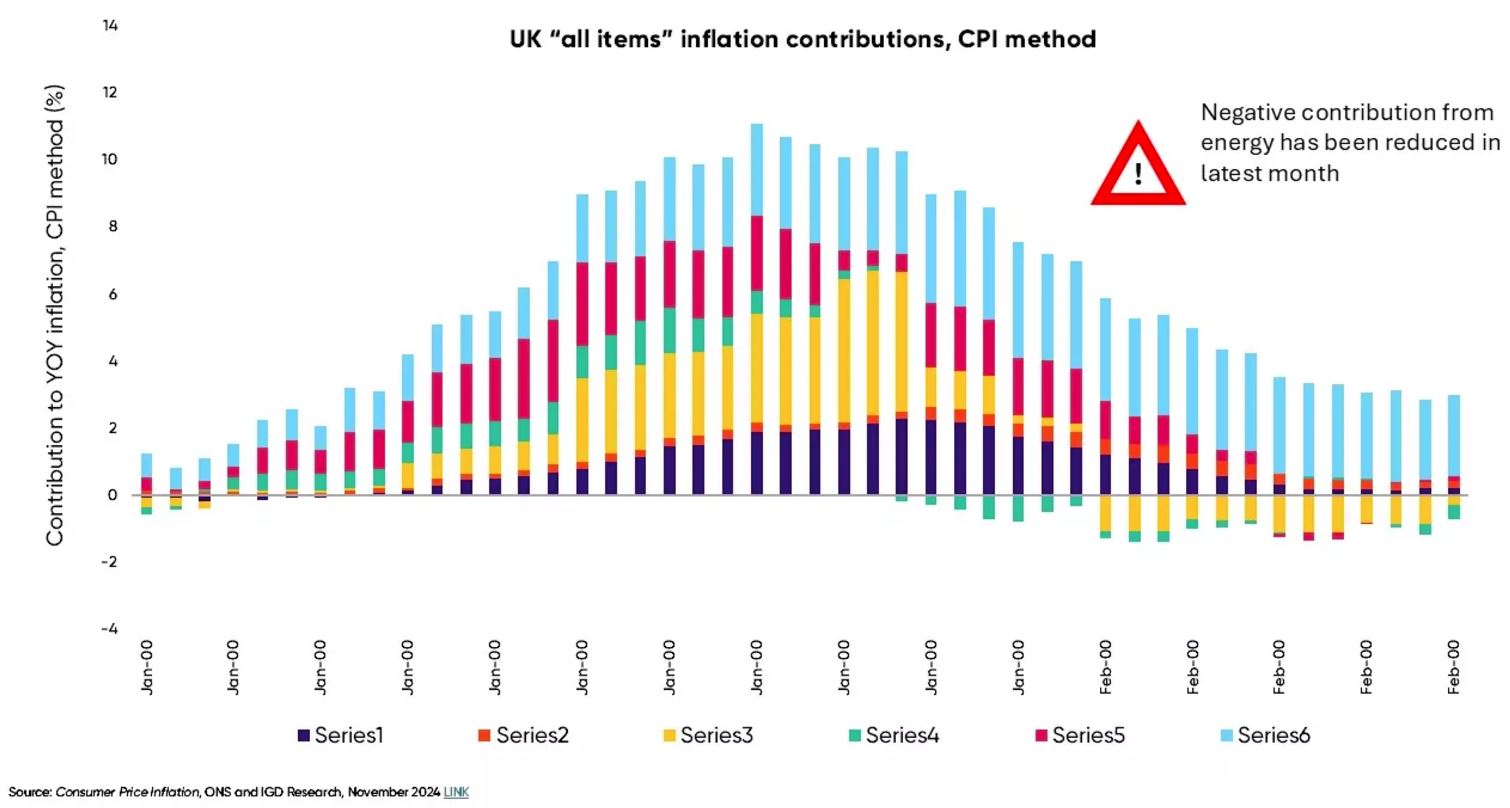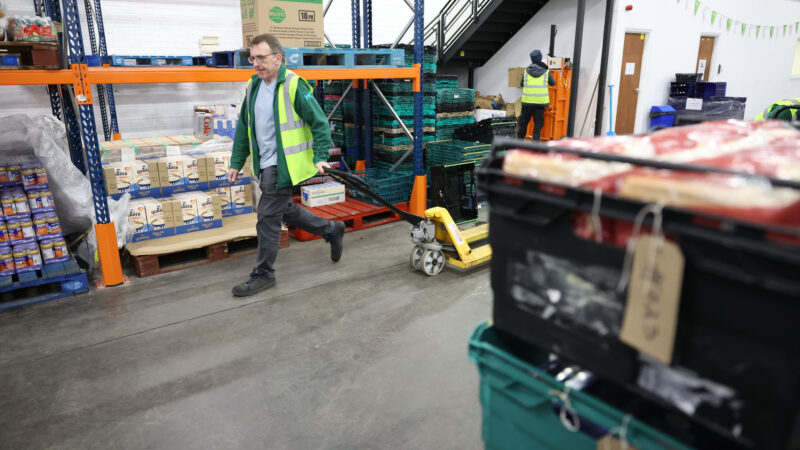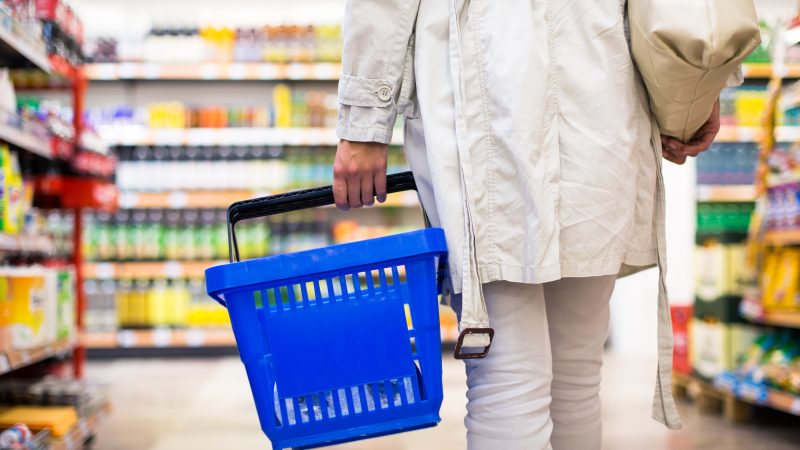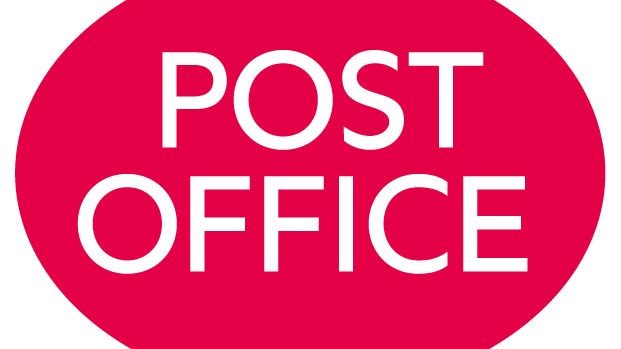Signs showing food inflation may be returning soon

Food inflation may soon be returning, according to the latest insights from IGD.
New inflation data from the Office for National Statistics (ONS) covering October 2024, shows that ‘all items’ inflation, using the CPI method, moved upwards from 1.7% in September to 2.3% in October. IGD described this as an “abrupt movement” accounted for primarily by a change in the Ofgem domestic energy price cap.
The news comes as the British Retail Consortium recent stats showed that November was the first time in 17 months that shop price inflation was higher than the previous month, albeit remaining in overall negative territory.
Covering the period 1st to 7th November 2024, the BRC data shows shop price deflation was at 0.6% in November, up from 0.8% the previous month. Food inflation slowed to 1.8% in November, down from 1.9% in October, while fresh food inflation accelerated in November, to 1.2%, up from 1.0% in October.
Helen Dickinson, Chief Executive of the BRC said food prices increased for fresh products, such as seafood, which is more vulnerable to high import and processing costs, particularly during winter.
“While coffee prices experienced a momentary dip, price rises are imminent as global coffee prices approach record highs,” said Ms Dickinson.
“With significant price pressures on the horizon, November’s figures may signal the end of falling inflation. The industry faces £7 billion of additional costs in 2025 because of changes to Employer’s National Insurance Contributions, business rates, an increase to the minimum wage and a new packaging levy.

“If the government wants to prevent this, it must reconsider the existing timelines for the new packaging levy, while ensuring any changes to business rates offer a meaningful reduction for all retailers as early as possible,” she added.
Mike Watkins, Head of Retailer and Business Insight at NielsenIQ added: “Shoppers are still being cautious by shopping savvy for the essentials and holding back their discretionary spend, so the lower level of inflation should help sentiment ahead of Black Friday promotions.
“And with lower inflation than this time last year, many food retailers are extending offers and discounts to help sales momentum in December.”
The Institute of Grocery Distribution’s Chief Economist, James Walton notes that energy prices were still lower in October 2024 than in October 2023, but are now making a much smaller negative contribution to inflation than in September.
Looking ahead, he points out that business costs in the food and drink supply chain will rise further, due to government policy rather than ‘market’ effects, and food and drink businesses may be especially exposed if they have large workforces or many workers on lower wages and part-time contracts.
With business costs likely to rise and little margin available to absorb this, IGD warns it is likely that at least some cost increases will need to be passed to consumers, although not necessarily immediately.






